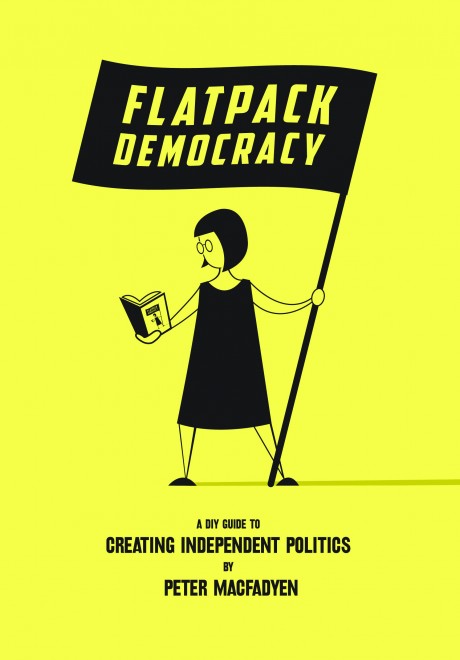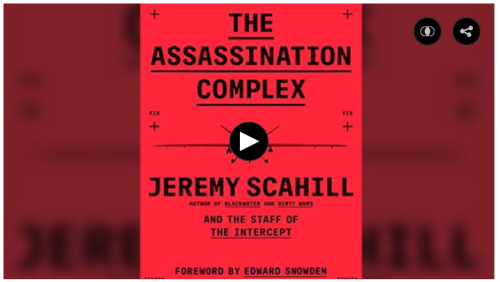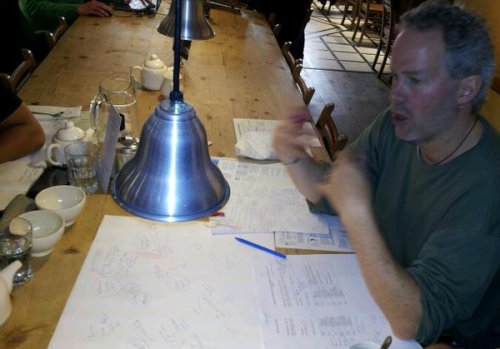 I was delighted to meet Ian Fraser the other day, an award-winning journalist and author of Shredded: Inside RBS, The Bank That Broke Britain. We compared our respective wounds received as journalists kicking outside of the usual confines of our chosen professional activity – an all-too-rare breath of fresh air for me.
I was delighted to meet Ian Fraser the other day, an award-winning journalist and author of Shredded: Inside RBS, The Bank That Broke Britain. We compared our respective wounds received as journalists kicking outside of the usual confines of our chosen professional activity – an all-too-rare breath of fresh air for me.
We did one another the favour of paying cash for our respective books accompanied with promises to read and review the other’s output.
Ian came good, way ahead of me, doing me the following review on Amazon.
I am delighted by his enthusiasm for the book while also being cheered by his references to the likes of the ex-Telegraph columnist Peter Oborne as proof of the ongoing relevance of its arguments about democracy and journalism.
If I could be so ungrateful, my sole, additional wish would be to encourage anyone who is moved to buy a hard copy to do so via the more independently minded book retailer Hive.co.uk rather than adding to the tax-phobic coffers of Bezos and co.
There’s also the PDF version that you can download for free from here.
Whatever you do, this is the review – many thanks again Ian.
Patrick Chalmers has written an important and timely book. Building on his experience as a Reuters correspondent in London, Brussels and Kuala Lumpur, he lifts the lid on the subtle and pervasive bias of our mainstream media.
He outlines how this bias can include self-censorship, journalists allowing themselves to be “co-opted” by the rich and powerful, the cozying up of media to major advertisers (as we saw with Peter Oborne’s recent revelations that the Daily Telegraph either removed, toned down or failed altogether to cover negative stories about major advertiser HSBC) and the “spiking” of stories that undermine media proprietors’ prevailing pro-globalisation, neo-liberal agenda.
The chapters on the frustrations he felt as a Reuters correspondent trying to provide balanced coverage of the European Union, of dusty corners of the financial markets and of the attempts of Malaysian prime minister Mahathir bin Mohamad to resist the “Washington Consensus” are particularly good.
Patrick argues that the mainstream media in the West, as well as global news outfits such as Reuters and Bloomberg (whose journalism is largely funded by the leasing of data terminals to the finance sector), now see their role as being to buttress a failed economic ideology and to pander to an often corrupt elite. As such, he says they have become a pernicious influence that’s obstructing understanding and democracy. The lack of scepticism that most journalists display for international trade treaties like TTIP and unaccountable EU decision-making processes are just two of the areas of media failure covered in the book. Readers, listeners and viewers are being badly let down, writes Chalmers, adding that by amplifying ‘spin’, the media has unleashed a dangerous tide of misinformation that threatens to engulf our democracies.
The media failures outlined in Fraudcast News are also giving rise to a phenomenon that the writer and journalist Tariq Ali has separately described as the rise of the “extreme centre”. Prefiguring his recently published book The Extreme Centre: A Warning, Ali wrote: “What is the point of elections? The result is always the same: a victory for the extreme centre. Since 1989, politics has become a contest to see who can best serve the needs of the market, a competition now fringed by unstable populist movements. The same catastrophe has taken place in the US, Britain, Continental Europe and Australia.”
Chalmers ends on a positive note. In his conclusion, he examines how as a result of, among other things, the rise of social media and the internet, it has never been easier for civil society and public-interest journalists to develop a more ethical, balanced and responsible approach to covering the news. He provides examples of the rise of alternative channels of communication that bypass the mainstream media, arguing that these are much more capable of challenging our dangerously flawed governance structures than the media we grew up with.


 I’m a big admirer of the work done by
I’m a big admirer of the work done by 






Greenland river on ice, courtesy James Balog (https://chasingice.com/)
I decided to jump into the comments stream on this Guardian-hosted event on the best ways to communicate climate solutions, as below. The format was somewhat of a shocker, requiring a read-through of multiple comments coming in at all angles, and yet produced various pointers to useful resources on the subject. It’s clear we are still stumbling along with global, real-time, communication events but that doesn’t mean they are worthless, quite the opposite.
So this was my contribution: